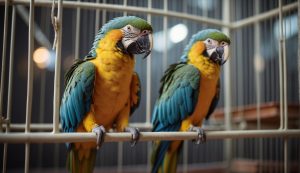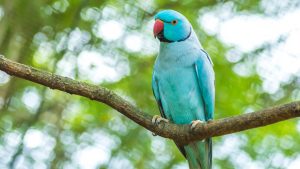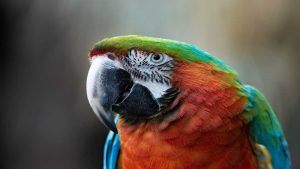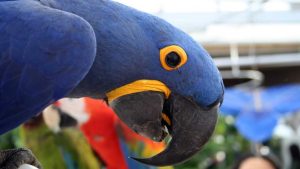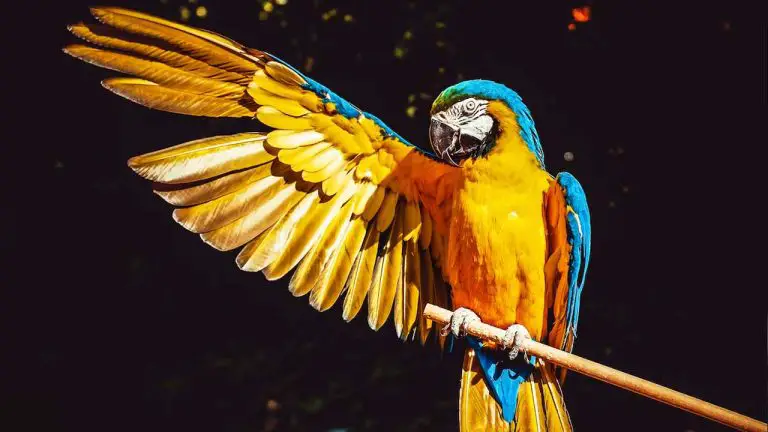How Long Can You Leave a Parrot Alone? Expert Advice and Guidelines
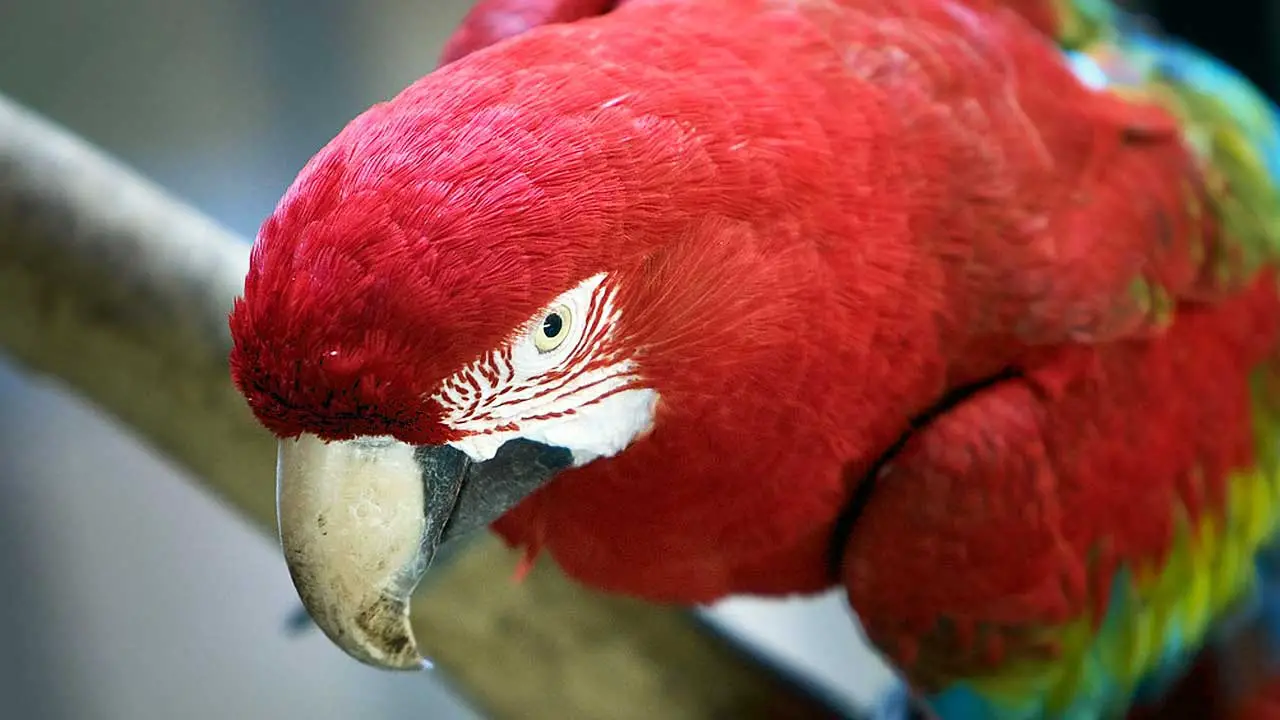
Leaving a pet parrot alone for extended periods of time can lead to a variety of consequences, including loneliness, anxiety, and destructive behaviors.
Parrots are social creatures that crave attention and companionship, and without it, they can become bored, depressed, and even self-harm.
Bird owners must be aware of the risks of leaving their parrots alone and take steps to ensure their pet’s well-being.
Quick Summary
While it may be tempting to leave a parrot alone while traveling or on vacation, it is not recommended to leave them alone for more than a few hours at a time.
Parrots require one-on-one interaction with their human companions, and leaving them alone for extended periods can have serious consequences.
Pet owners should consider hiring a bird sitter or boarding their parrot in a comfortable and stimulating environment to ensure their pet’s needs are met while they are away.
Table of Contents
The Social Nature of Parrots

Parrots are social creatures that thrive on companionship and interaction. In the wild, they live in flocks and spend most of their time with other birds. They communicate with each other through vocalizations, body language, and grooming. When kept as pets, parrots need human interaction to feel like they are part of a flock.
Leaving a parrot alone for long periods can lead to loneliness and anxiety. Parrots are intelligent animals that need mental stimulation and socialization to be happy and healthy. Without these, they can become bored and destructive, which can be dangerous for both the parrot and the owner’s property.
In addition to the emotional risks, leaving a parrot alone can also expose them to physical danger. In the wild, parrots are prey animals and must always be alert for predators. When kept as pets, they still have that instinct to be on the lookout for danger. If left alone for too long, they may become stressed and vulnerable to illness or injury.
Overall, it is not recommended to leave a parrot alone for an extended period. They need companionship, interaction, and mental stimulation to be happy and healthy. If an owner must leave their parrot alone for a short time, they should make sure the bird has enough food and water and provide toys or other forms of mental stimulation to keep them occupied. If an owner needs to be away for a longer period, they should arrange for a trusted friend or pet sitter to check on the bird regularly and provide companionship and interaction.
The Importance of Human Interaction
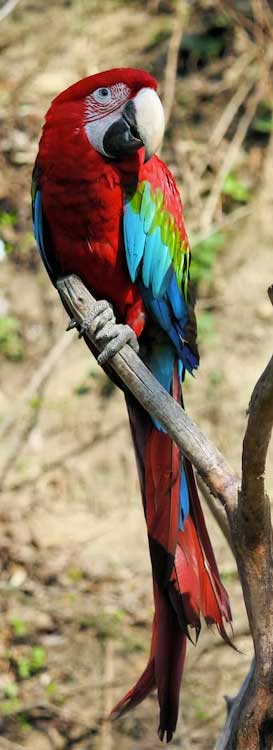
Parrots are social creatures that require a lot of attention and interaction with their owners. They need companionship and should never be left alone for too long. Ideally, parrots should have several hours of human interaction every day to keep them happy and healthy.
One-on-one interaction with your parrot is crucial for bonding and building trust. You should talk to your parrot and show it affection regularly. This not only strengthens your relationship but also helps prevent behavioral problems that can arise from lack of attention.
In addition to bonding, human interaction also provides mental stimulation for parrots. They are intelligent animals that need mental stimulation to stay healthy. Interacting with your parrot can provide them with the necessary mental stimulation that they need.
It is important to note that not all forms of interaction are equal. While leaving the TV on or playing music may provide some background noise, it is not a substitute for one-on-one interaction. Parrots need direct interaction with their owners to thrive.
In summary, human interaction is essential for the well-being of parrots. They need companionship, attention, and one-on-one interaction to stay happy and healthy. Regular human interaction not only strengthens the bond between you and your pet but also provides necessary mental stimulation for your parrot.
How Long Can Parrots Be Left Alone?
Parrots are social birds that thrive on interaction and attention from their owners. Leaving them alone for extended periods of time can lead to boredom, loneliness, and destructive behaviors. However, there may be times when owners need to leave their parrots alone, such as when traveling or in case of emergencies.
Factors to Consider
When deciding how long a parrot can be left alone, there are several factors to consider, such as the bird’s personality, routine, and level of socialization. Some parrots may be comfortable being alone for short periods of time, while others may become anxious and self-harm if left alone for too long.
Owners should also consider the resources available to their bird while they are away. A comfortable and safe environment with plenty of food, water, and stimulation can help keep a parrot content and happy. Providing toys, puzzles, and other enrichment activities can also help prevent boredom and destructive behaviors.
In addition, owners should consider the consequences of leaving their parrot alone for extended periods of time. Feather plucking, chewing, and other harmful behaviors can develop when a parrot is bored or lonely. Pet sitters or boarding facilities may be a better option for owners who need to leave their parrot alone for an extended period of time.
Factors to Consider
Leaving a parrot alone for extended periods of time can be a source of anxiety for bird owners. However, there are times when it is necessary to leave a parrot alone, such as when traveling or in case of emergency. In these situations, it is important to consider several factors to ensure that the bird stays healthy, happy, and content.
Age
The age of the parrot is an important factor to consider when leaving it alone. Younger parrots require more attention and interaction than older ones. Therefore, it is not advisable to leave a young parrot alone for extended periods of time. Older parrots, on the other hand, may be more comfortable being left alone for a few hours.
Personality
The personality of the parrot is another important factor to consider. Some parrots are more social and require more human interaction than others. These birds may become bored, depressed, or even self-harm if left alone for too long. In contrast, some parrots are more independent and may be comfortable being left alone for a few hours.
Training
A well-trained parrot is more comfortable being left alone than an untrained one. A trained parrot is less likely to engage in destructive behaviors, such as chewing on furniture or plucking its feathers. Therefore, it is important to train the parrot to be comfortable with separation and to provide it with resources, such as puzzles and toys, to keep it stimulated.
Food and Water
It is important to ensure that the parrot has enough food and water before leaving it alone. Parrots should have access to fresh fruits, vegetables, pellets, and seeds. Additionally, it is important to ensure that the water is clean and fresh.
Cage and Perches
The cage and perches should be comfortable and safe for the parrot. The cage should be spacious enough for the bird to move around and stretch its wings. Additionally, the perches should be made of safe materials and should be placed in different positions to provide the bird with different views of its surroundings.
Toys and Enrichment
Toys and enrichment activities are important for keeping the parrot stimulated and entertained. Parrots enjoy puzzles, toys, and other activities that challenge their intelligence and provide them with mental stimulation. It is important to provide the parrot with a variety of toys and activities to keep it engaged and happy.
In conclusion, leaving a parrot alone requires careful consideration of several factors, including age, personality, training, food and water, cage and perches, and toys and enrichment. By taking these factors into account, bird owners can ensure that their pets remain healthy, happy, and content even when left alone for short periods of time.
Age
Age is an important factor to consider when determining how long to leave your parrot alone. Younger parrots are more likely to get bored and stressed when left alone and can develop behavioral problems as a result.
A younger, more active parrot may need more attention and interaction than an older, more sedate bird. Additionally, a parrot who is used to being around people may suffer from separation anxiety if left alone for too long.
It is important to note that older parrots can also become bored and unhappy if left alone for extended periods of time. While they may not require as much attention and interaction as younger birds, they still need companionship and stimulation to remain healthy and happy.
Training can also play a role in how long a parrot can be left alone. A well-trained parrot may be able to entertain itself for longer periods of time than a bird that has not been trained.
In summary, age is an important factor to consider when determining how long a parrot can be left alone. Younger birds require more attention and interaction, while older birds still need companionship and stimulation to remain healthy and happy. Training can also play a role in how long a parrot can be left alone.
Personality
Parrots, like humans, have unique personalities. Some parrots are naturally independent and can handle being alone for longer periods, while others are more social and require constant companionship. It is important to understand your parrot’s personality and needs to determine how long you can leave them alone.
Parrots that enjoy attention and companionship may become anxious or lonely when left alone for extended periods. This can lead to destructive behaviors such as feather plucking or excessive screaming. To prevent these behaviors, it is recommended to provide your parrot with plenty of stimulation and interaction when you are home, and to limit the amount of time they are alone.
Training can also play a role in how long a parrot can be left alone. Parrots that are trained to entertain themselves with toys and activities may be able to handle longer periods of alone time. However, it is important to gradually increase the amount of time your parrot is alone to prevent anxiety or stress.
It is important to note that parrots can get lonely, just like humans. If you are planning to be away for an extended period, it is recommended to have a trusted friend or family member check on your parrot and provide them with companionship. Alternatively, boarding your parrot at a reputable facility can provide them with socialization and stimulation while you are away.
In summary, understanding your parrot’s personality and needs is crucial in determining how long you can leave them alone. Providing your parrot with adequate attention, training, and stimulation can help prevent destructive behaviors and anxiety. If you are planning to be away for an extended period, it is important to provide your parrot with companionship to prevent loneliness.
Training
Training your parrot can help them become more independent and comfortable when left alone for short periods of time. It’s important to start training early and be consistent with your approach. Here are a few tips for training your parrot:
- Positive Reinforcement: Use positive reinforcement techniques, such as treats and praise, to reward good behavior. This will help your parrot associate good behavior with positive outcomes.
- Start Small: Start with short training sessions and gradually increase the length of time your parrot is alone. This will help them build confidence and independence.
- One-on-One Interaction: Spend one-on-one time with your parrot every day. This will help them feel more comfortable and secure when left alone.
- Talk to Your Parrot: Talk to your parrot regularly. This will help them feel more connected to you and less lonely when you’re not around.
While training can be helpful, it’s important to remember that parrots are social animals and require companionship and attention. It’s best to avoid leaving your parrot alone for extended periods of time whenever possible. If you must leave your parrot alone, make sure they have plenty of toys and a comfortable environment to keep them occupied.
Food and Water
When leaving a parrot alone, it is essential to ensure that they have access to fresh food and water. Parrots require a balanced diet to maintain their health and well-being. A healthy diet for a parrot should consist of fresh fruits, vegetables, pellets, and seeds.
It is recommended to provide fresh food and water twice a day. The food and water bowls should be cleaned and refilled daily to prevent contamination and ensure that the parrot has access to clean water and fresh food.
Pellets are an excellent source of nutrition for parrots, and they should make up the majority of their diet. Seeds should be given in moderation as they are high in fat and can lead to obesity and other health problems if given in excess.
It is also important to note that parrots are social creatures and enjoy eating with their owners. Therefore, it is a good idea to train your parrot to eat with you and make mealtime a bonding experience.
In summary, providing fresh food and water is crucial when leaving a parrot alone. A balanced diet consisting of fresh fruits, vegetables, pellets, and seeds is essential to maintain their health and well-being. It is also important to clean and refill the food and water bowls daily to prevent contamination and ensure that the parrot has access to clean water and fresh food.
Cage and Perches
When leaving a parrot alone, it’s essential to ensure they are comfortable and have everything they need in their cage. The cage should be spacious enough for the bird to move around freely, with plenty of room to stretch their wings and fly short distances. The cage should also be secure, with no escape routes or areas where the bird could get stuck.
Perches are also important for a parrot’s well-being. They should be placed at different heights and made of different materials, such as wood or rope, to provide variety and stimulation. The perches should be thick enough for the bird to grip comfortably, with no sharp edges that could injure their feet.
Toys and enrichment activities are also crucial for a parrot’s mental health. The cage should have plenty of toys to keep the bird entertained and prevent boredom. These toys can include puzzle toys, chew toys, and foraging toys. It’s important to rotate the toys regularly to keep the bird interested and engaged.
While the cage and perches are essential, they are not a substitute for companionship and attention. Parrots are social animals and require interaction with their human caregivers. If leaving a parrot alone for an extended period, it’s essential to arrange for someone to check on them and provide some human interaction.
Training can also help a parrot feel more comfortable and secure in their cage. Positive reinforcement training can teach the bird to associate their cage with positive experiences, such as treats and praise.
In summary, when leaving a parrot alone, it’s crucial to ensure their cage is spacious, secure, and contains a variety of perches and toys. However, it’s important to remember that these things are not a substitute for human companionship and attention.
Toys and Enrichment
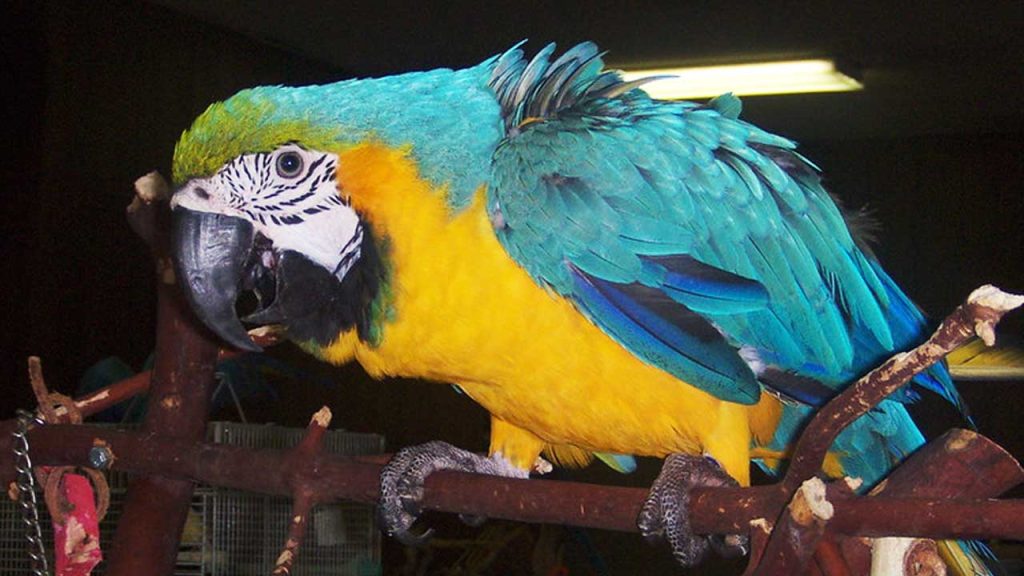
Parrots are highly intelligent and require mental stimulation to thrive. Providing them with toys and enrichment activities is essential to their well-being, especially when they are left alone for extended periods. Here are some tips for choosing the right toys and activities for your parrot:
- Rotate toys regularly: Parrots can become bored with the same toys quickly, so it’s important to rotate them regularly. Many parrot owners change their bird’s toys once a week to keep them engaged.
- Avoid overcrowding the cage: While it’s important to provide your parrot with enough toys to keep them occupied, overcrowding the cage can lead to stress and prevent them from moving around freely. Make sure the cage is large enough for them to move around in and that the toys don’t take up too much space.
- Provide foraging opportunities: Parrots are natural foragers, so providing them with opportunities to find food can be highly enriching. You can hide treats in toys or create foraging stations in their cage to encourage them to use their problem-solving skills.
- Make your own toys: Making your own toys can be a fun and cost-effective way to provide your parrot with enrichment. You can use materials like cardboard, paper, and natural fibers to create toys that your parrot will enjoy playing with.
- Supervise playtime: While toys and enrichment activities are important, it’s crucial to supervise your parrot during playtime to ensure their safety. Make sure the toys are safe and that your parrot isn’t ingesting any small pieces.
By providing your parrot with a variety of toys and enrichment activities, you can help keep them mentally stimulated and happy, even when you’re not able to be with them.
Conclusion
In general, it is best to avoid leaving a parrot alone for more than a few hours at a time. While it may be possible to leave a parrot alone for up to 24 hours with proper preparation, it is not advisable to do so regularly. Owners should prioritize their parrot’s socialization and companionship needs, and seek out resources such as bird sitters or boarding facilities when needed. By providing a comfortable and stimulating environment for their parrot, owners can help ensure their pet remains healthy, happy, and content.

